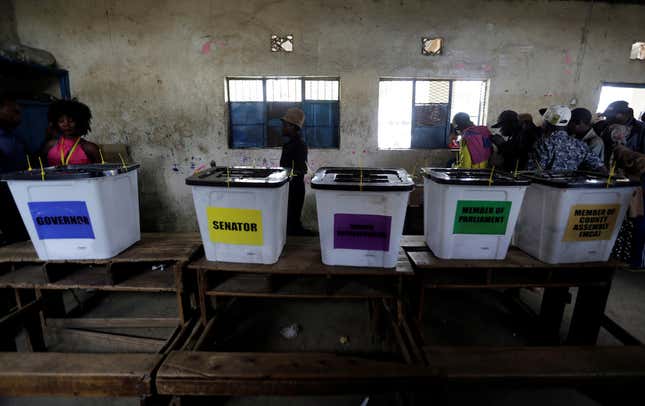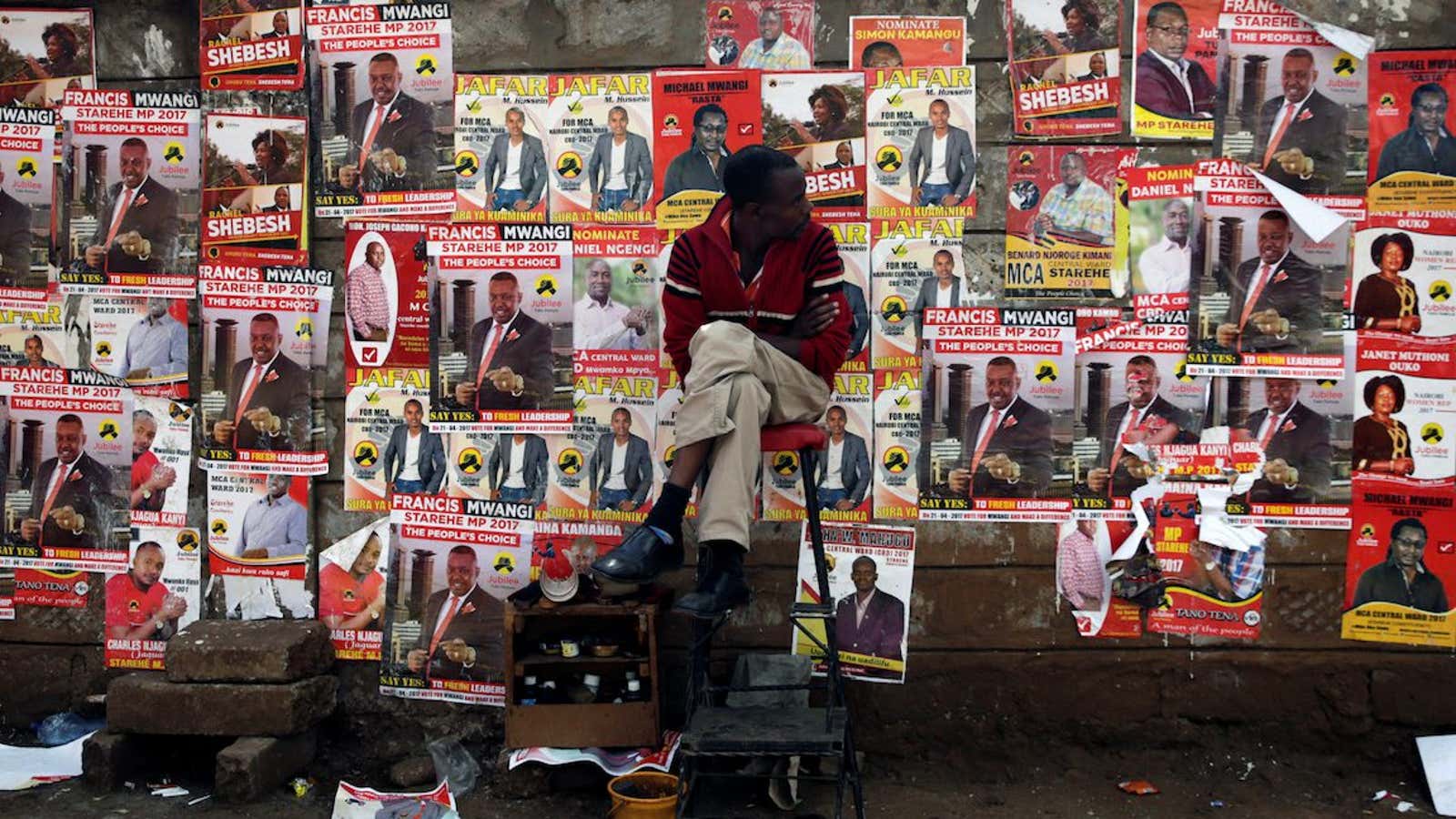In less than 107 days, Kenya goes to the polls to elect a new president, 47 governors, 290 parliament seats, and 1,450 county level seats.
But preparations for the upcoming general election in one of Africa’s most stable democracies and largest economies aren’t going so well. So far the process has been marred by delays, infighting, and protests.
The main opposition party, which has yet to choose a candidate, postponed its primaries after a warehouse storing its ballot papers was stormed this week. The ruling Jubilee party under president Uhuru Kenyatta last week cancelled all of its primaries because organizers ran out of ballot papers. The party explained the shortfall by saying, “nobody expected the kind of turnout we saw.”
In primaries that did go ahead, police fired teargas on voters in western Kenya who claimed vote rigging. Angry residents in central Kenya burned ballots to protest missing candidate names.
The appearance of fair and free elections in Kenya is almost as important as the real thing. Few political transitions have gone smoothly in Kenya since it instituted a multi-party democracy in 1992. Accusations of vote rigging in the 2007 election erupted two months of violence, leaving more than 1,000 people dead and over half a million displaced. Similar accusations were made after elections in 2013, when electronic voting systems failed and officials had to revert to manual counting.
That’s why, over the next few weeks, much hinges on the results of an audit of Kenya’s voter registration poll. A massive voter drive has increased the number of registered voters by almost 40% since the last election, to 19.6 million, almost half of Kenya’s population. Critics say the voter roll includes underage voters, dead people, and duplicate registrations.
The international auditing firm KPMG has been checking the names of voters against the government’s birth and death registers, housing and population censuses, and recently issued passports and national identification cards. KPMG is to deliver its report to Kenya’s election board in early May.

It may still be inconclusive. Kenya’s birth and death records, as well as census data, are incomplete. A civil society group, Kenya Human Rights Commission, also says the audit doesn’t address those left off of the register altogether or deep-seated mistrust among the public toward Kenya’s election board.
“It will not be able to substantively comment on people’s lived experiences with registration or on how voter registration problems are disenfranchising parts of the population,” the director of the commission, George Kegoro, told local media.
Without assurances of transparency, more protests, violence, and instability for East Africa’s largest economy are likely. Already, the International Monetary Fund has revised its forecasts for Kenya downward—to grow 5.3%, from an earlier prediction of 6%—due to heightened “political instability.”
International observers are also wary. After sending a team of researchers to Kenya earlier this month, the Washington-based National Democratic Institute said in a report: “Numerous stakeholders asserted to the delegation that the question is not whether there will be violence, but how much and where.”




